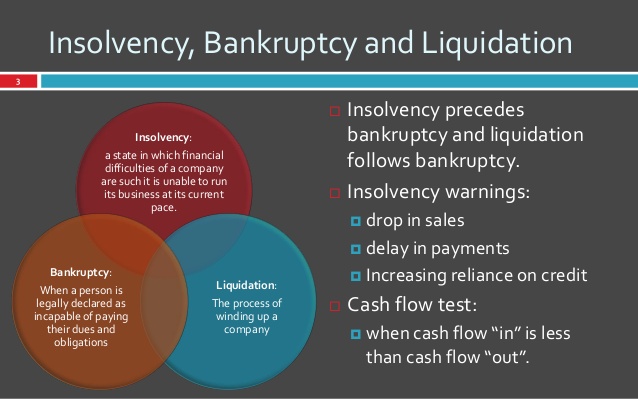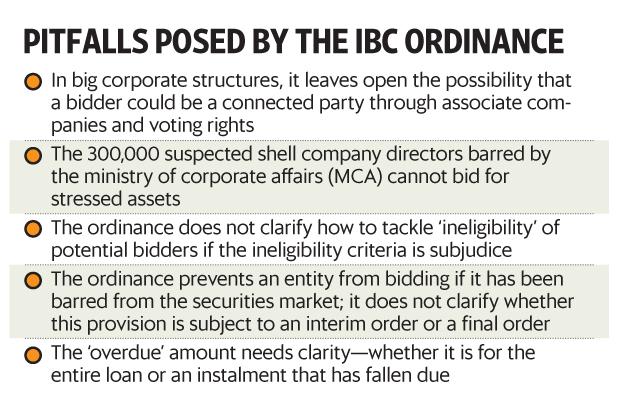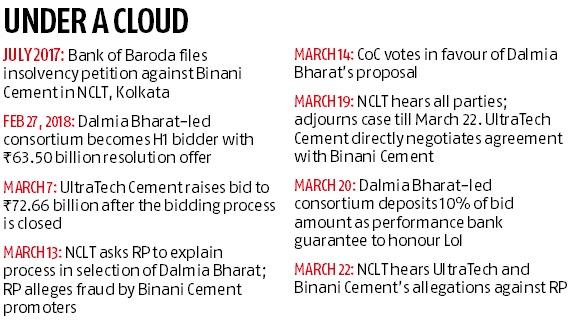RECENT AMENDMENTS TO INSOLVENCY AND
BANKRUPTCY CODE 2016
- · Now
, an Applicant has to pass the Limited Insolvency Examination within twelve
months before the date of his application for enrollment with the insolvency
professional agency;
- · He
has to complete a pre-registration educational course after his enrollment as a professional
member with IBBI.
- · He
has to disclose as to whether he was an employee of or has been in the panel of
any financial creditor of the corporate debtor
· .
An insolvency professional shall disclose the fee payable to him
GAZETTE OF
INDIA
EXTRAORDINARY
PART III,
SECTION 4
PUBLISHED BY
AUTHORITY
NEW DELHI, 27th
MARCH, 2018
INSOLVENCY AND BANKRUPTCY BOARD OF
INDIA
NOTIFICATION
New Delhi, 27th March, 2018
Insolvency and Bankruptcy Board of India (Insolvency
Professionals) (Amendment Regulations, 2018
IBBI/2017-18/GN/REG027
- In exercise of the powers conferred by sections 196, 207 and 208 read with
section 240 of the Insolvency and Bankruptcy Code, 2016 (31 of 2016), the Insolvency
and Bankruptcy Board of India hereby makes the following regulations to amend the
Insolvency and Bankruptcy Board of India (Insolvency Professionals)
Regulations, 2016, namely: -
1. (1) These regulations may be called the
Insolvency and Bankruptcy Board of India
(Insolvency Professionals) (Amendment) Regulations,
2018.
(2) They shall come into force on 1st
April, 2018.
2. In the Insolvency and Bankruptcy Board of India
(Insolvency Professionals)
Regulations, 2016 (hereinafter referred to as
principal regulations), in regulation 3, for sub-regulation (3), the following
sub-regulation shall be substituted, namely: -
“(3) The syllabus, format, qualifying marks and
frequency of the Limited Insolvency
Examination shall be published on the website of
the Board at least three
months before the examination.”.
3. In the principal regulations, for regulation 5,
the following regulation shall be substituted, namely: -
“5.
Qualifications and experience.-
Subject to the other provisions of these regulations,
an individual shall be eligible for registration, if he -
(a) Has passed the Limited Insolvency Examination within twelve months
before the date of his application for enrolment with the insolvency
professional agency;
(b) Has completed a pre-registration
educational course, as may be required by the Board, from an insolvency
professional agency after his enrolment as a professional member; and
(c)
has-
(i) successfully completed the National Insolvency
Programme, as may be approved by the Board;
(ii) successfully completed the Graduate Insolvency
Programme, as may approved by the Board;
(iii) fifteen years’ of experience in management,
after receiving a Bachelor’s degree from a university established or recognised
by law; or
(iv) ten years’ of experience as –
(a) chartered accountant registered as a member of
the Institute of Chartered Accountants of India,
(b) Company secretary registered as a member of the
Institute of Company
Provided that the insolvency professional entities
recognised as on the date of commencement of the Insolvency and Bankruptcy
Board of India (Insolvency Professionals) (Amendment) Regulations, 2018 shall
comply with the provisions of clauses (a), (b) (c) and (d) on or before 30th
September, 2018 and the provisions of clauses (e), (f) and (g) on or before
30th June, 2018.”.
6. In the principal regulations, in the First
Schedule, -
(i) for “[ Under regulation 7(2)(g)]” the following
shall be substituted, namely: - “[Under
regulationA 7 (2) (h)]”;
PRE-DISCLOSURE
REQUIREMENTS
(ii) after item (8), the following item shall be
inserted, namely: -
“8A. An insolvency professional shall disclose as to whether he was an
employee of or has been in the panel of any financial creditor of the corporate
debtor, to the committee of creditors and to the insolvency professional
agency of which he is a professional member and the agency shall publish such disclosure on its website.”;
(iii) after item (25), the following item shall be
inserted, namely: -
“25A. An insolvency professional shall disclose the fee payable
to him, the fee payable to the insolvency professional entity, and the
fee payable to professionals engaged by him to the insolvency professional
agency of which he is a professional member and the agency shall publish such
disclosure on its website.”.
7. In the principal regulations, in the Second
Schedule, for FORM A, the following Form A.
According to the amendment regulations,
a. Subject to meeting
other requirements, an individual shall be eligible for registration as an
insolvency professional if he has passed the Limited Insolvency Examination
within the last 12 months and has completed a pre-registration
educational course from an insolvency professional agency, as may be required
by the Board.
b. The syllabus,
format, qualifying marks and frequency of the ‘Limited Insolvency Examination’
shall be published on the website of the IBBI at least three months before the
examination.
c. An individual with
the required experience of 10 / 15 years is eligible for registration as an
insolvency professional. In addition, an individual with little or no experience
shall be eligible for registration as an insolvency professional on
successfully completing the Graduate Insolvency Programme, as may be approved
by the IBBI.
d. As a condition of
registration, an insolvency professional shall undergo continuing professional
education as may be required by the IBBI.
e. An insolvency
professional shall not outsource any of his duties and responsibilities under
the Code.
f. A company, a
registered partnership firm or a limited liability partnership shall be eligible
for recognition as an insolvency professional entity,
if –
i. its sole objective
is to provide support services to insolvency professionals, who are its
partners or directors, as the case may be;
ii. It has a net worth
of not less than one crore rupees;
iii. Majority of its
shares is held by insolvency professionals, who are its directors, in case it
is a company;
iv. Majority of
capital contribution is made by insolvency professionals, who are its partners,
in case it is a limited liability partnership firm or a registered partnership firm;











